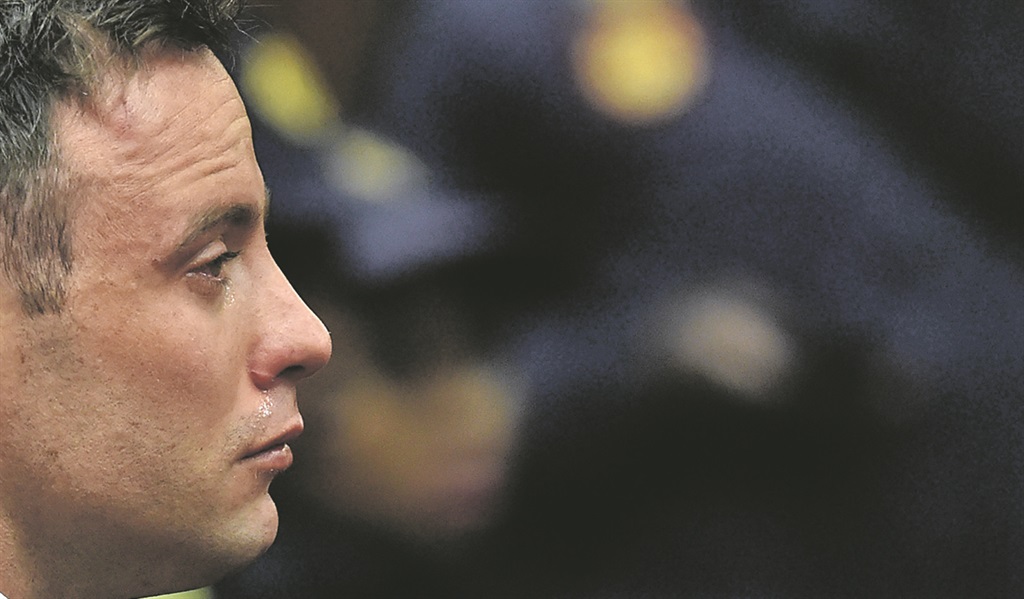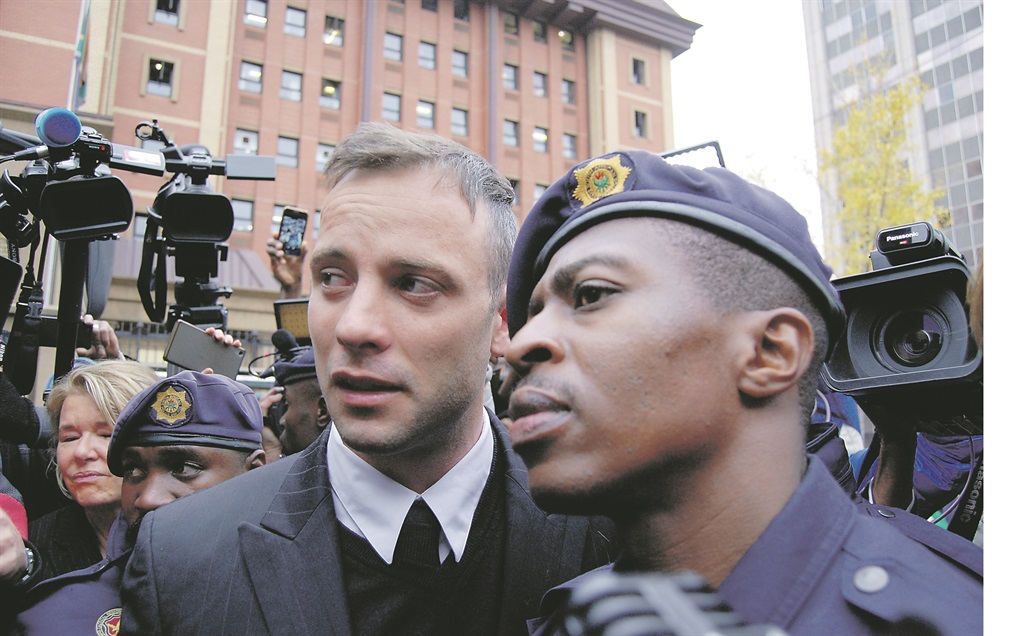
If there is anything to be salvaged from this trial, it is a conversation about masculinity and vulnerability, and less lethal ways of marrying the two
This week, Oscar Pistorius placed vulnerability centre stage. What did Pistorius’ performance mean when he took off his prosthetic legs and hobbled around the courtroom?
How do we read this insertion of a vulnerable male body into the public sphere of language and reason, a sphere in which the law must find a delicate balance between justice for the victim and rehabilitation of the perpetrator?
If there is anything to be salvaged from this endless and awful trial, it is this conversation about masculinity and vulnerability, and less lethal ways of marrying the two. Vulnerability is a feeling that Reeva Steenkamp would have been able to explain so well if she had lived.
She knew she was vulnerable when, in her terror, she hid away and locked the door to that tiny, tomb-like bathroom where she was murdered. She sheltered from Pistorius’ fear (of an intruder) or rage (at her). Which was never resolved because Pistorius never took the stand to explain.
Instead, Pistorius performed a retrospective vulnerability for the world. He removed his prosthetic legs and, weeping, he hobbled around the court on his stumps. But this version of helplessness was not in evidence on the night he murdered Reeva. That night, when he claims to have heard an intruder, Pistorius did not call the police or press the panic button.
Instead, he loaded his gun with Black Talon bullets – military ammunition designed not only to kill but to obliterate the body of an enemy – and walked the few short steps to the bathroom where Reeva hid. Whether, in Pistorius’ mind, that enemy was his lover or the intruder of his febrile imagination, we will never know. All we know is that it was Reeva’s body that was torn to pieces.
How is one meant to weigh up Pistorius’ disabled body against the prosthetic power that a gun gives a man, a power with which there is no bargaining? The prosecutor, Gerrie Nel, with the approval of Reeva’s parents, asked that the photographs of Reeva’s corpse be released.
Reeva’s voice had been permanently silenced on February 14 2013, so this was her only opportunity to “speak”, to “show” – with all the mute eloquence of her dead body – what Pistorius did to her. Hers is the brutal and involuntary voicelessness of the victim. All that remains is the gruesome visual language of crime-scene photographs, the autopsy pictures, the tests and the testimony of experts.
Pistorius chose not to take the stand. He let his body “speak” for him when he chose a grotesque display of retrospective vulnerability in which he inserted his body into the place of his victim, Reeva – he sought, in the court proceedings this week, to usurp that place.
This was difficult to stomach. Pistorius has been found guilty of murder. There is no further appeal. There are no more cards that he can hold close to his chest in the hope of getting off. Pistorius’ refusal to admit culpability and to ask for forgiveness is as hard to bear as it is to comprehend.
His infantile regression into retching and tears during the trial was an insult to the woman he shot and to her bereaved family. This is not because tears are “unmanly”.
Tears of grief or remorse or insight are courageous in anyone – man or woman – as is an admission of vulnerability. But vulnerability is not an excuse in and of itself for mindless aggression, nor for self-pity.
The defence’s Barry Roux claimed that his client had “unfairly become the face of gender violence”. But Pistorius’ behaviour is that of the textbook bully. First the swagger and the guns, then the crying and abjection in court. When a bully is dislodged from his position of dominance, aggression is replaced with self-pity. That is the face of gender violence. Pistorius’ lack of remorse and his refusal to take responsibility, his insistence that he was “driven to do what he did”, is all too familiar.
The South African justice system is not designed to deliver vengeance. However, Roux’s claim that “no court can punish Pistorius as he has punished himself” is absurd. Murder carries a minimum sentence of 15 years for good reason.
A society as misogynistic and violent as South Africa’s requires atonement. Whatever the sentence is on July 6, it will not return Reeva to the circle of people who loved her. It will, however, indicate that the lethal macho idiocy that prompted Pistorius to reach for his gun has no place in our world; that a man cannot get off because he claims that he should be pitied because his vulnerability led him to ruin his own life by taking the life of another person.
It was Reeva who was vulnerable. It was she who was wounded and killed because of Pistorius and his lethal version of masculinity. There are other versions of manhood that do not require guns, but that do require a backbone and courage, and an ability to accept the limits of one’s powers and the consequences of one’s actions.
If there is anything to be learnt from this trial, it is that vulnerability is not something to be repressed; to be denied; to be feared. Vulnerability is the condition of being human. It is not something to be replaced with aggression and guns.
Orford is a journalist, film director and author. Her recent book is Water Music published by Jonathan Ball. She is chairperson of Pen South Africa
Should Oscar Pistorius receive a lesser sentence because he has prosthetic legs?
SMS us on 35697 using the keyword OSCAR and tell us what you think. Please include your name and province. SMSes cost R1.50




 Publications
Publications
 Partners
Partners










